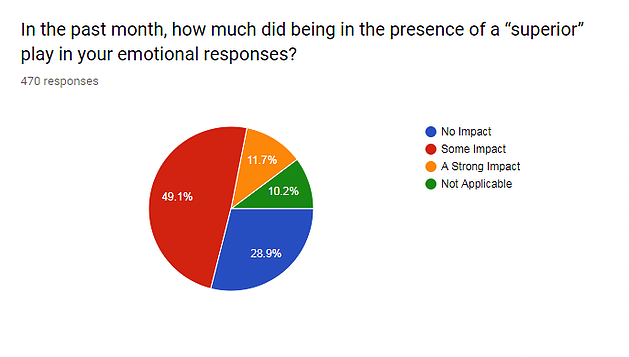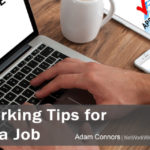This is a guest post by Dr. Roger Caramanica, Organizational Development Thought Leader and Instructor at Mercy College in Dobbs Ferry, NY
When people think about networking their minds may conjure the image of meet and greets, scanning LinkedIn profiles and opportunities to meet people outside of the flow of their everyday work. It is equally important, if not more so, to consider how you network within your own company and the ways in which your role impacts the quality of your organization network building.
How well do you know the people around you?
I’d like you to take a moment to conduct a quick survey. Look around at your colleagues. How many people in your own company do you know on a personal level? Look beyond your immediate peers, subordinates, or those within your own direct line of reporting. Extend it out to other departments within the company. How many of these individuals would you carry over into your next career if you moved on from the company? How many would you keep in your personal network? If you are like most individuals, the number is probably low. If you have more than 5 give yourself a round of applause!
The opportunities to network within one’s own organization can oft be overlooked.
The opportunities to network within one’s own organization can oft be overlooked. The larger the organization the harder this can become which can result in silos and poor communication. Developing a culture that fosters opportunity for employees to spend time getting to know one another at a personal level regardless of their department, status or role within the organization should be a focus for all corporate leaders. Michael Soto, in his recent guest post for NetWorkWise, outlined some great strategies for utilizing physical office design to create casual collisions to foster internal networking.
When building your personal networks within your own organization, there are myriad factors that will play into your success. One key factor to consider is your personal position within the company and the way in which people emotionally respond to you and your emotional response, in turn, to them. The ability to understand and master these skills will ultimately impact your ability to build deep and lasting bonds and grow your network within your organization.
Your Role Matters
I was sitting in our CEO’s office one day discussing the culture at our organization and his plans to conduct “Coffee with the CEO” sessions with the employees to increase communication, transparency and encourage engagement. This purposeful and thoughtful leadership behavior encourages interaction and internal networking opportunities from the executive offices and I was all for it! However, I found myself cautioning him to remember that regardless of how affable, charming, or self-effacing he is, that his role comes with an inherent amount of impact on individual’s perceptions and on their emotional state and responses. Employees may be less open, more guarded, and more apt to behave in a manner they feel “appropriate” than they would with someone they view as an equal.
His response was something along the lines of, “It’s our employees who are the ones who are special. I want them to see me as a trusted peer, not just the CEO”.
He had great aspirations and a great way of viewing talent in an organization, but the reality of the situation is not that simple. Recently, Dr. Stephen Rice from the Embry Riddle Aeronautical University and I surveyed 470 fully employed adults across the U.S. regarding their emotional regulation techniques. Specifically, we were interested in the use of expressive suppression which Gross & Levenson define as the attempt to hide, reduce or inhibit ongoing emotion-expressive behavior. In other words, people will knowingly “bite their tongue” or seek to hide their feelings as an emotional response in certain situations.
“It’s our employees who are the ones who are special. I want them to see me as a trusted peer, not just the CEO”.
When asked, 60.8% of respondents stated that just being in the presence of someone they deem to be a “superior” had some impact, or a strong impact, on their emotional responses. Our survey supports what is often “common” knowledge for those with experience in the workplace, people will alter their behavior and responses to others when they deem the person to be a superior.
Being Aware
Now, clearly, not everyone is impacted by the presence of a superior and this dynamic varies from person to person as does the impact on relationship building. But the survey results illustrate that perception of roles does matter and can play a factor in how individuals respond to one another emotionally. Many experts have outlined the importance of emotional intelligence when building relationships. Daniel Goleman has clearly outlined the importance of being self-aware and equally, if not more so, the importance of being socially aware and to exhibit high levels of empathy.
Many experts have outlined the importance of emotional intelligence when building relationships.
If I may be so bold, I would build upon this and add that those in positions of power need to be even more aware of their role and the roles of those around them when building bonds. Chuck Garcia, CEO of Climb Leadership and professor at Columbia, and also a guest on NetWorkWise’s Conversations with Connors podcast, puts it best for me when he says “man, leaders just need to be real. They need to show they are human”.
Too often I have seen individuals in leadership roles that want to simply discount their position’s impact on their relationships and bonds within their organization. Although this sort of humility and humble nature is admirable it doesn’t help in the long run to ignore. Simply seeking to be relatable or affable is not enough to bridge the variables at play. Those in positions of power need to cultivate their emotional intelligence skills and factor their role within the organization into the relationship dynamic. With a clear understanding of the potential emotional impact of their role when connecting and communicating with others, leaders can better develop strong and lasting relationships with those within their organization.

Roger Caramanica holds a Ph.D. in Industrial Organizational Psychology and a Master’s Degree in Labor Relations. He has over fifteen years of experience in the field of learning and development and leadership. Currently, he holds the role of Vice President of Organizational Development for EDR, a world-class environmental data firm in Shelton, CT and teaches organizational leadership and human resources area of focus for Mercy College in Dobbs Ferry, NY. His present areas of study surrounds emotional intelligence and the adoption within the workplace. Contact information: Caramanicar@gmail.com










